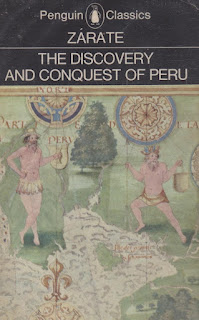I've been postponing writing this for the past 2 months. And if I delay any further, the 'three books' will become 'Four books' and then 'Five books' and so on. So to cut down on the misery of writing so much, decided to bite the bullet and write now.
Why this urge to write about books I read? This is a question I've been asking since the day I started writing a diary so long ago and unanswered it is still. So moving on to the books.
Redcoats And Rebels: The War For America - Christopher Hibbert
The history of America as it got its independence and wrote itself a constitution and declared itself as a republic is a very interesting one.
From the writings of Franklin to the histories of Gore Vidal the literature that covers the same is abundant and Tom Paine's manifesto and the constitution itself, a brilliant exercise in the handling of words by Jefferson, the contemporary documents are also available in plenty. So when I bought this one, there was not much of expectation other than that this was bought cheap.
But when I found that this was written by a British historian from a British perspective, it was not just interesting but it helps in understanding the 'other' side of the story.
The book starts with the Stamp act and ends with the surrender of Cornwallis's army at Yorktown. And the entire story is told from the British perspective with lots of details on how the British bungled the entire war and lost a continent.
The book deals with the decisions taken by the King, the parliament and the senior commanders of the British army in the continent which though won the battles, ultimately lost the war. The lack of a larger strategy, engaging the mercenaries, the political tussle between the commanders, the oscillating mindset of the King and the Parliament itself accounts for the ultimate defeat.
The tenacity with which Washington and the rebels fought was never accounted for by the British and we see them wondering at various points as to the reason why the Americans are still fighting. But they never did try to understand the population or the terrain in which they were fighting. As political appointees, the commanders only tried to make sure they don't end up losing before their term is over. All this and more contributes to the eventual British defeat.
While it is wonderful to look back and figure all this today, I was wondering what it would've been in the 1770's Britain and understand the course of war and make decisions. What the British public thought of the war (if they ever did), is not discussed and same goes for what the rest of the world thought of it.
Overall, an interesting read and as recommended by Paul Theroux, I am planning to read the British view of the 1857 war of independence by the same author 'The Great Mutiny' sometime soon.
- To be continued
From the writings of Franklin to the histories of Gore Vidal the literature that covers the same is abundant and Tom Paine's manifesto and the constitution itself, a brilliant exercise in the handling of words by Jefferson, the contemporary documents are also available in plenty. So when I bought this one, there was not much of expectation other than that this was bought cheap.
But when I found that this was written by a British historian from a British perspective, it was not just interesting but it helps in understanding the 'other' side of the story.
The book starts with the Stamp act and ends with the surrender of Cornwallis's army at Yorktown. And the entire story is told from the British perspective with lots of details on how the British bungled the entire war and lost a continent.
The book deals with the decisions taken by the King, the parliament and the senior commanders of the British army in the continent which though won the battles, ultimately lost the war. The lack of a larger strategy, engaging the mercenaries, the political tussle between the commanders, the oscillating mindset of the King and the Parliament itself accounts for the ultimate defeat.
The tenacity with which Washington and the rebels fought was never accounted for by the British and we see them wondering at various points as to the reason why the Americans are still fighting. But they never did try to understand the population or the terrain in which they were fighting. As political appointees, the commanders only tried to make sure they don't end up losing before their term is over. All this and more contributes to the eventual British defeat.
While it is wonderful to look back and figure all this today, I was wondering what it would've been in the 1770's Britain and understand the course of war and make decisions. What the British public thought of the war (if they ever did), is not discussed and same goes for what the rest of the world thought of it.
Overall, an interesting read and as recommended by Paul Theroux, I am planning to read the British view of the 1857 war of independence by the same author 'The Great Mutiny' sometime soon.
- To be continued

